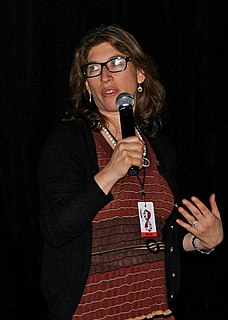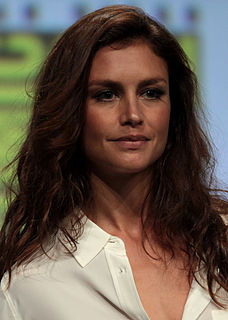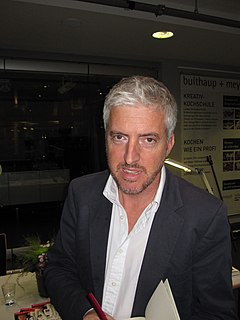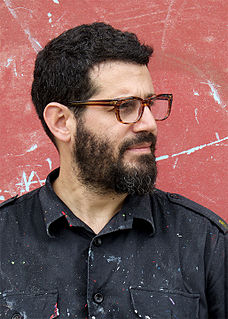A Quote by Lauren Greenfield
My first book, 'Fast Forward', was about growing up in the shadow of Hollywood and how kids are affected by the culture of materialism and the cult of celebrity, and I've often felt the reason my work has an audience in the U.K. is because it's everything the British love to hate about the Americans.
Related Quotes
Every culture has beauty and decorations of body. This is not of itself superficial, this is very human. Decorating when it becomes out of balance, when it becomes about the materialism, about how many shoes, how many handbags, how expensive they are, and the status, then it's no longer just about an expression or looking beautiful, that's more about 'I HAVE MONEY, I AM RICH'. It felt out of balance.
Our whole goal is really to create a culture of accountability. Because for a very long time, ending sexual assault has been on the backs of survivors. And it's really up to everyone to be part of the solution. It's really about not creating a culture of awareness. It's something I often tell parents of kids who are going off to college: It's about asking those hard questions when your kids are applying to school and encouraging them to ask about their rights, to ask about their resources.
Life isn't happily ever after... It's work. The person you love is rarely worthy of how big your love is. Because no one is worthy of that and maybe no one deserves that burden of it, either. You'll be let down. You'll be disappointed and have your trust broken and have a lot of real sucky days. You lose more than you win. You hate the person you love as much as you love him. But you roll up your sleeves and work - at everything - because that's what growing older is.
Sometimes I think I shouldn't explain much about my work because people will just feel what they feel when they see it. They'll love it or hate it or enjoy it on their own, like how I've looked at abstract paintings of other artists and cried or felt happy because I've felt, "Wow, I've lived that, I've understood that."
I just feel like every kid is growing up too fast and they're seeing too much. Everything is about sex, and that's fine for me. I'm not saying I don't like it. But I don't think it should be everywhere, where kids are exposed to everything sexual. Because they have to have some innocence; there's just no innocence left.
The success [of the X-Men], I think, is for two reasons. The first is that, creatively, the book was close to perfect ... but the other reason is that it was a book about being different in a culture where, for the first time in the West, being different wasn't just accepted, but was also fashionable. I don't think it's a coincidence that gay rights, black rights, the empowerment of women and political correctness all happened over those twenty years and a book about outsiders trying to be accepted was almost the poster-boy for this era in American culture.
I think as a performer, it can be really great to stand on stage, especially when you have more time, but I do think about the specific people in the audience, how it's hard for them to get up and go to the bathroom, how they chose not to do other things that night and have turned off their phones and everything. So for that reason, I think it's necessary to mix it up and talk to the audience.
I realized why I can cook for different environments. Because of everything I've gone through growing up. Why can I cook for a Hollywood event without blinking an eye? Because I cooked at the Beverly Hilton and because I moved to Villa Park. Why can I cook for kids on Hollywood Boulevard at night? Because I went through it.







































